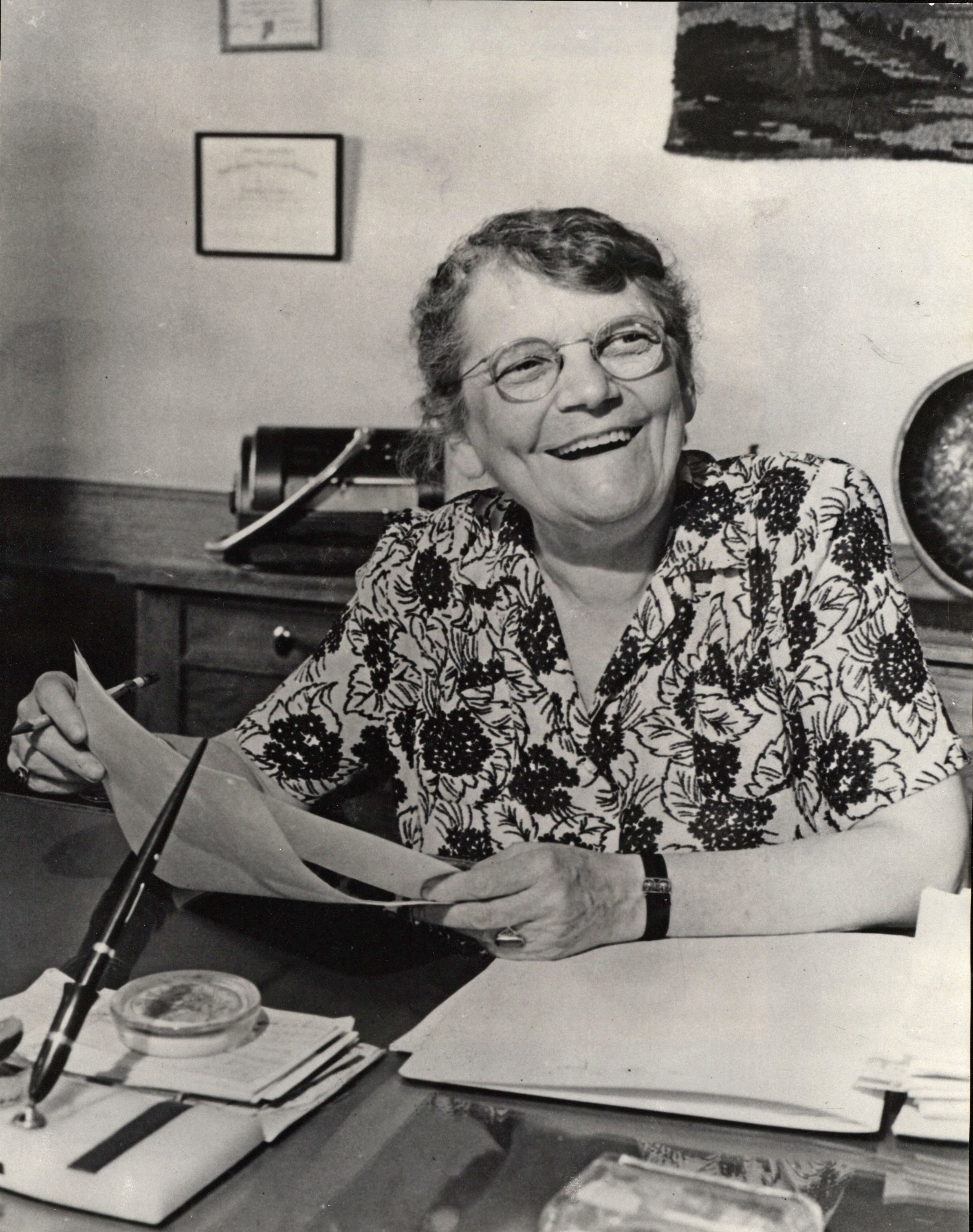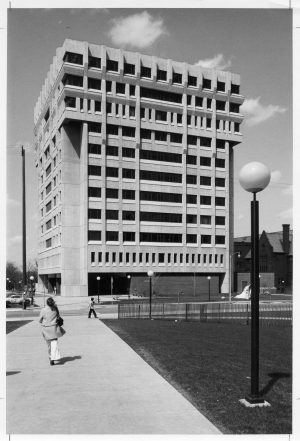A world-renowned continuing education and recreation pioneer, Dorothy Enderis was born in 1880 to Swiss immigrant parents in Elmhurst, Illinois.[1] The following year, her family moved to Milwaukee. After graduating from the Milwaukee Normal School in 1901, Enderis worked for eight years as that institution’s assistant librarian and then as a fourth-grade teacher.[2] In 1911, Harold Berg offered her a position in the Milwaukee Public Schools’ new Recreation and Community Services Division. There, Enderis applied an educational philosophy that advocated cultural pluralism, upheld ethnic traditions, and responded to shifting community needs.[3] As Director of Recreation (1920-1948), she cultivated an award-winning playground and social center program that improved the lives of young people, adults, and seniors through a variety of instructive and recreational opportunities. To do so, Enderis utilized the city’s existing public school buildings during evening hours, allowing her to channel departmental resources into programming rather than facility rentals or new construction.[4] The Enderis Park neighborhood on Milwaukee’s northwest side and the University of Wisconsin-Milwaukee’s Enderis Hall honor her passion for lifelong learning and recreational enrichment.[5]
Footnotes [+]
- ^ Maralyn A. Wellauer-Lenius, Swiss in Greater Milwaukee (Chicago, IL: Arcadia Publishing, 2010), 53.
- ^ “Enderis, Dorothy, 1850-1952,” Dictionary of Wisconsin History, Wisconsin Historical Society website, accessed December 22, 2013, http://www.wisconsinhistory.org/dictionary/index.asp?action=view&term_id=1285&; Elizabeth A. Jozwiak, “Politics in Play: Socialism, Free Speech, and Social Centers in Milwaukee,” Wisconsin Magazine of History 86 (3) (Spring 2003): 14.
- ^ Jozwiak, “Politics in Play,” 20.
- ^ Milwaukee Public Schools, “100 Years of Recreation: Games, Photos & Stories from Milwaukee Recreation’s Archives,” (2011), accessed December 29, 2013, http://www.milwaukeerecreation.net/about-us/100-Yr-Booklet-for-web.pdf, now available at http://milwaukeerecreation.net/MPS-Recreation/Resources/history-100-year-booklet.pdf, last accessed July 18, 2017.
- ^ Nancy A. Herrick, “Happy House near the Park,” Milwaukee Journal Sentinel, July 4, 2004, 7N.
For Further Reading
Greene, Victor. “Dealing With Diversity: Milwaukee’s Multiethnic Festivals and Urban Identity, 1840-1940.” In Perspectives on Milwaukee’s Past, edited by Margo Anderson and Victor Greene, 285-315. Champaign, IL: University of Illinois Press, 2009.
Jozwiak, Elizabeth A. “Politics in Play: Socialism, Free Speech, and Social Centers in Milwaukee.” Wisconsin Magazine of History 86, no. 3 (Spring 2003): 10-21.
Numark, Eleanor J. “Ethel Bowers, Dorothy Enderis and Eva Whiting White: A Historical Perspective of Their Contributions to the Professionalization of the Recreation Movement.” Ed.D. thesis, New York University, School of Education, Health, Nursing, and Arts Professions, 1979.
Stephens, Lela B. The Lady of the Lighted Schoolhouses. Milwaukee: Marquette University Press, 1955.
Velie, Meredithe Ann. “Hierarchy and Web: A Study of Urban School Reform, Gender, and Cognitive Style in Milwaukee, 1890-1920.” PhD diss., University of Wisconsin-Madison, 1992.
Wellauer-Lenius, Maralyn A. Swiss in Greater Milwaukee. Chicago, IL: Arcadia Publishing, 2010.


0 Comments
Please keep your community civil. All comments must follow the Encyclopedia of Milwaukee Community rules and terms of use, and will be moderated prior to posting. Encyclopedia of Milwaukee reserves the right to use the comments we receive, in whole or in part, and to use the commenter's name and location, in any medium. See also the Copyright, Privacy, and Terms & Conditions.
Have a suggestion for a new topic? Please use the Site Contact Form.